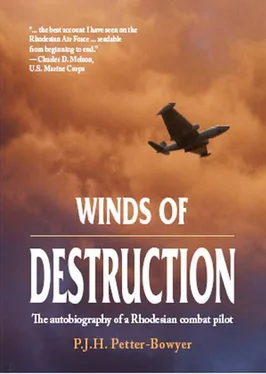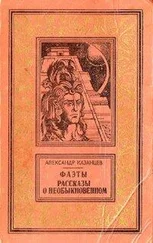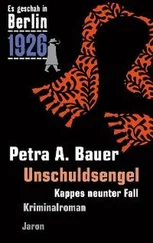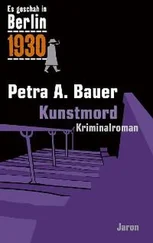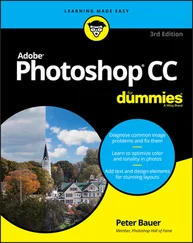Peter Petter-Bowyer - Winds of Destruction
Здесь есть возможность читать онлайн «Peter Petter-Bowyer - Winds of Destruction» весь текст электронной книги совершенно бесплатно (целиком полную версию без сокращений). В некоторых случаях можно слушать аудио, скачать через торрент в формате fb2 и присутствует краткое содержание. Город: Solihull, Pinetown, Год выпуска: 2012, ISBN: 2012, Издательство: Helion & Company, 30° South Publishers, Жанр: Биографии и Мемуары, на английском языке. Описание произведения, (предисловие) а так же отзывы посетителей доступны на портале библиотеки ЛибКат.
- Название:Winds of Destruction
- Автор:
- Издательство:Helion & Company, 30° South Publishers
- Жанр:
- Год:2012
- Город:Solihull, Pinetown
- ISBN:9781908916754
- Рейтинг книги:5 / 5. Голосов: 1
-
Избранное:Добавить в избранное
- Отзывы:
-
Ваша оценка:
- 100
- 1
- 2
- 3
- 4
- 5
Winds of Destruction: краткое содержание, описание и аннотация
Предлагаем к чтению аннотацию, описание, краткое содержание или предисловие (зависит от того, что написал сам автор книги «Winds of Destruction»). Если вы не нашли необходимую информацию о книге — напишите в комментариях, мы постараемся отыскать её.
Winds of Destruction — читать онлайн бесплатно полную книгу (весь текст) целиком
Ниже представлен текст книги, разбитый по страницам. Система сохранения места последней прочитанной страницы, позволяет с удобством читать онлайн бесплатно книгу «Winds of Destruction», без необходимости каждый раз заново искать на чём Вы остановились. Поставьте закладку, и сможете в любой момент перейти на страницу, на которой закончили чтение.
Интервал:
Закладка:
Through Mum and Berry I had met the Northern Rhodesian politician Roy Welensky at his home in Broken Hill. This happened long before he became Prime Minister of the Federation of Rhodesia and Nyasaland. But now as Sir Roy Welensky, heading the Federal Government, he gladly provided me with the written character reference required by the Air Force Pilot Selection Committee.
Having filled in all forms, I rode out to Dad’s farm on my AJS 500-single motorbike to get his signature of parental approval. Dad was happy to do this but, while searching for a pen, my stepmother interrupted, “Not over my dead body will you sign that application form.” That stopped Dad dead in his tracks. I could not believe what I had heard nor could I understand why Dad would not stand up for me in what he had first supported.
Why was I being stopped from doing something that would be good for me and without cost to family? The sad look on my father’s face told the whole story. I deliberately rode off gently rather than expose my incredible pain and anger by storming off at high speed.
Although, up until this time, my stepmother had done all in her power to crush me, I shall be eternally grateful to her for giving Tony and me two fantastic sisters. In years to come, Brigid and Mary married Jock McSorley and Doug Palframan whom Tony and I both consider the greatest and most lovable brothers-in-law any man could wish for.
Everything was complete, but for Dad’s signature—I even considered forging it but changed my mind. Instead I returned to Mr Burford for advice and this resulted in a consultation with his lawyer. The lawyer pointed out that the unsigned signature block read PARENT/LEGAL GUARDIAN. He drew a line through LEGAL GUARDIAN and told me to send the forms to Northern Rhodesia for my mother’s signature. Mum signed the form in spite of her deep concerns, having lost two brothers to flying with her only surviving brother already serving as a pilot in the Royal Rhodesian Air force.
Mine was one of over 350 applications received for No 10 SSU (Short Service Unit) training. Of these only thirty-five applicants were accepted for the final pilot selection process at New Sarum airbase. I was lucky to be one of these and even luckier to be one of the eighteen candidates to receive instructions to report for pilot training on 3 January 1957.
Chapter 2

Ground Training School

REPORTING FOR SERVICE MUST BE much the same for everyone. I am certain most recruits suffer intense apprehension and a sense of awkwardness while seeking out anyone in civilian clothing looking as unsure and awkward as they feel. I was delighted to find David Thorne whom I had met some months before during the pilot selection process. Together we felt more confident and were soon gathering in our new course mates.
All Rhodesian schoolboys had undergone Army Cadet training at school and the annual cadet camps at Inkomo Barracks. So we instinctively responded to the bellowed command “Fall in”. Before us was the Station Warrant Officer (SWO) Bill Holden, a large ruddy-faced ex-British Royal Marine. Having welcomed us into the RRAF and, following a few words on what we were required to do over the next two days, sixteen men in civvy clothing were doubled-off’ to sign up for service.
Thereafter, we went to Station Equipment section where we drew uniforms and our flying kit, then doubled to the Officers’ Mess single quarters to check into our billets; two cadets to a room. By midday we were being drilled in our unpressed and uncomfortable new uniforms and stiff shoes. The SWO gave all commands in the typical Army way but otherwise he acted somewhat differently to the drill sergeants we had previously known. He used no bad language and acted in a formal yet non-threatening manner.
We were released to our billets in the late afternoon to find all members of No 9 SSU awaiting our arrival. They immediately set out to subjugate us, a recognised prerogative of the senior course. Since they only had two nights before we would be at Thornhill and beyond their clutches, 9 SSU decided to make both nights sheer hell for us.
This course had been at Thornhill for their training and, like us, had only been subjected to the attentions of their predecessors—No 8 SSU—for two nights when they attested for service. The consequence of this was that they had little idea of how to handle a junior course.
The first ‘directive’ issued was that every one of 10 SSU was to have all his hair shaved off. For a short while they thought they had us under control until it came to cutting Gordon Wright’s hair.
Gordon stood back and said, “There is no way I am taking this. If you want to cut my hair you will have to force it on me.”
From me they received a similar response, which was again repeated by Ian Ferguson. The senior course recognised that someone was going to get hurt if they pressed the issue and found a feeble way of doing away with the mandatory haircut. They decided instead to leave things be until we had showered and dressed for dinner.
In the Officers’ Mess, under guidance of young officers who had recently gained their commissions, 9 SSU first challenged 10 SSU to a schooner race. This is a drinking competition involving an equal number of competitors facing each other in two rows. 9 SSU needed six junior officers to match our number.
In a schooner race each contender is given a full tankard of beer and an umpire verifies this. Upon instruction from the umpire, the first two opposing contenders at one end of the line commence drinking their beer as fast as possible with everyone else chanting “down, down, down”. Once a contender has emptied the contents of his tankard down his gullet, he inverts the tankard onto his head, giving signal to the next in line to start downing his beer. The first team to have all tankards inverted on heads is the winner.
For my course there was no chance whatsoever of winning such a race as none of us was a drinker. Most of us had not even started to drink by the time our opposition was through, but we were compelled to down the beer anyway. Having done so, we were committed to a second and then a third race. Even before the third race started every member of 10 SSU was reeling about, most giggling and one ran off to throw up.
We were then subjected to a number of humiliating activities that were of little consequence until it came to the ‘communal trough’. This was an oversized chamber pot filled with beer. Our course was to remain out of sight until called forward, singly, to the circle of baiting officer cadets and junior officers. There, each of us had to lift the pot from the floor, take four large mouthfuls and place the pot on the floor for the next in line. There was great cheering and jeering from our baiters as each of us was called forward to take his turn.
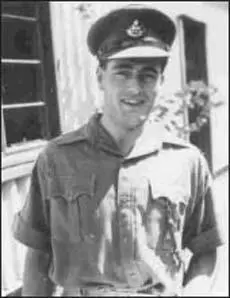
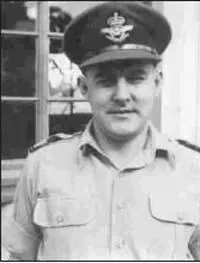
My time came and as I lifted the pot I saw two turds floating in the beer. Instinctively the pot was lowered until I realised that they were in fact two over-cooked sausages. I took four gulps and put the pot down. The very last of our number failed the test when he puked directly into the pot. At this point our course turned as one and walked away. Commands to return to order were met by somewhat drunkenly uttered “force us if you can” challenges.
Читать дальшеИнтервал:
Закладка:
Похожие книги на «Winds of Destruction»
Представляем Вашему вниманию похожие книги на «Winds of Destruction» списком для выбора. Мы отобрали схожую по названию и смыслу литературу в надежде предоставить читателям больше вариантов отыскать новые, интересные, ещё непрочитанные произведения.
Обсуждение, отзывы о книге «Winds of Destruction» и просто собственные мнения читателей. Оставьте ваши комментарии, напишите, что Вы думаете о произведении, его смысле или главных героях. Укажите что конкретно понравилось, а что нет, и почему Вы так считаете.
